30 April 2025
Getting older. Everyone does it, some more reluctantly than others. Yet despite it being an intrinsic part of the human experience, when it comes to understanding how age affects the body’s ability to fight disease, very little attention has been paid. Dr Michelle Linterman hopes to change that.
“Age is the biggest risk factor for any disease,” says Michelle from her office at the Malaghan where she’s the institute’s newest laboratory head. Having recently returned to New Zealand from the Babraham Institute in Cambridge, UK, she’s one of the relatively small number of scientists around the world actively looking into the ageing immune system and how to improve the way it responds to vaccination.
“It doesn’t matter what other complications you may have, when it comes to health the impact of ageing trumps everything. Almost everything has an intersection with age and, in research, for the most part it gets ignored.”
It’s now well understood that the diversity between people plays an important role in clinical outcomes. Because differences in things like sex and ethnicity exist, treatments and drugs need to take account these subtle biological, chemical and physical differences to make effective therapies and cures for everyone.
Bias in medicine – intentional or otherwise – has historically been all too common, with many treatments still in use today based on initial data collected from exclusively ‘male, ethnically white’ cohorts, leading to poorer outcomes for anyone who isn’t white or male.
While progress has been made to rectify both cognitive and unconscious bias in research, when it comes to age and how that affects a person’s response to treatment, many scientists are operating in the dark – and that could be putting our loved ones at risk.
It doesn’t matter what other complications you may have, when it comes to health the impact of ageing trumps everything.
“For the most part, age – specifically advanced age – isn’t taken into account in fundamental research,” explains Michelle. “Yet it’s very, very clear that it makes a massive difference when it comes to clinical outcomes. This represents a huge blind spot.”
As to why this blind spot exists? Michelle explains that it’s not through lack of desire, nor discrimination, but a much more mundane limitation many researchers face.
“The biggest reason I believe scientists aren’t taking age into account is, simply, cost. It’s exponentially more expensive to conduct preclinical or fundamental research on older mouse models compared to the same research on younger ones, due to the cost of housing and caring for them over several years. But it’s necessary to gain proper insight into how our biology changes as we age. Unfortunately, most budgets just aren’t able to stretch over months or years, so the data reflects that.”
As Michelle says – just because the research is expensive, doesn’t mean it’s not necessary. It just requires willpower.
“You need to have places like the Malaghan that are willing to invest in having age as a key factor in research. Not just that, you need to be able to bring together both the experimental models alongside clinical studies to make that crucial leap from hypothesis to mechanistic understanding of disease.”
Fighting infections is one area where the question of age plays a leading role. Older immune systems are less adept at launching immune responses, less able to produce infection-fighting antibodies with less efficient immunological memories compared to younger individuals.
This means not only are older people especially vulnerable to infections, they’re less equipped to make use of the immunological tools we have to fight them.
Vaccines are by far the best tool we have to fight infectious diseases. Yet, traditional vaccines aren’t at all geared towards an older immune system. Vaccination and its benefits, it seems, is a young person’s game.
The workaround is that older people need more frequent vaccinations to keep their immune systems topped up enough to protect them. But Michelle believes that we can develop better vaccines that specifically support good immune responses in the later years of life, which is why it’s a focus of her team’s research.
You need to be able to bring together both the experimental models alongside clinical studies to make that crucial leap from hypothesis to mechanistic understanding of disease.
“Germinal centres are essential for launching efficient, long lasting immune responses to things like vaccines,” says Michelle. “Germinal centres are these nexus hubs for the immune system where immune cells come together to exchange vital information on how to protect the body from things like infection.
Yet, research from Michelle’s team and other labs has shown that as we age, our germinal centres shrink, becoming less and less efficient at their job which means vaccination also becomes less effective.
A fundamental biologist at heart, Michelle has a particular love for these immunological marvels which bring molecular biology, genetics and immunology together to work as a team.
“The biology of the germinal centre is this highly collaborative, cellular microenvironment where you need lots of different cells to do the right thing at the right time in the right place to get a strong immunological response.”
So how can we turn back the clock on germinal centres? It’s not as simple as pumping old germinal centres with young, healthy immune cells. One thing Michelle is eager to explore is whether we can use the RNA technology embedded at the Malaghan institute to boost germinal centre function in ageing.
“What I’m focusing my research on here at the Malaghan is the interaction between the immune and the non-immune cells, and how that shapes the general immune response. If there's a way that we can modify those interactions or borrow something from those interactions that could be encoded in an RNA vaccine, that might then make germinal centres bigger, faster, longer, stronger.”
Michelle says that since a young age she’s had the desire to get to the bottom of how biology works, to move beyond correlation and find the culprits responsible for disease.
“I have always been interested in trying to understand how things work, much of which I think is thanks to a really great teacher I had at Paraparaumu College who had a talent for nurturing people’s interests. Basically he was a huge nerd that encouraged other nerds!
“That led to a Bachelor of Biomedical Science at Te Herenga Waka – Victoria University of Wellington, of which I was one of the first intakes for that programme.”
“What led me down the road of genetics and molecular biology was thanks to, in part, the wave of advancements in the field at the time. The human genome had just been sequenced which opened the door for this next generation of biology that I was eager to be a part of.”
In 2005, after finishing her bachelors, Michelle went on to complete her doctorate at the Australian National University with Dr Carola Vinuesa, whose lab was focused on understanding autoimmune disease from a genetic perspective in fundamental mouse models.
“I realised that if you want to do hypothesis-driven research, then working in experimental models like mice compared to observational work in humans gave you the opportunity to properly test those hypotheses and give you more conclusive answers around how biology works. This fundamental understanding can lead to innovative ways to target the immune system to improve its function”
Finishing her studies, Michelle moved to the UK where she spent the following decade and a half working first at the University of Cambridge , then at the Babraham Institute where she became a Group Leader. Now at the Malaghan, Michelle still has one foot firmly at the Babraham, eager to combine the strengths of both world-class institutes.
“I'm super excited about the RNA platform at the Malaghan. With what they’ve created I think there’s a huge amount of opportunity to do really cool preclinical vaccine development work hand-in-hand with fundamental research, and that may actually have an impact on targeting and improving vaccines for everybody.”
“What really excites me about the Malaghan is the focus on leveraging fundamental biology to improve health. That's very much where I want my career to be, and I think the Malaghan is the perfect place to do that.”
------------------------------------------------------------------
Listen to Michelle Linterman on RNZ Saturday Morning: The age-old question: cracking the code of waning immunity, 17 May 2025
Related articles
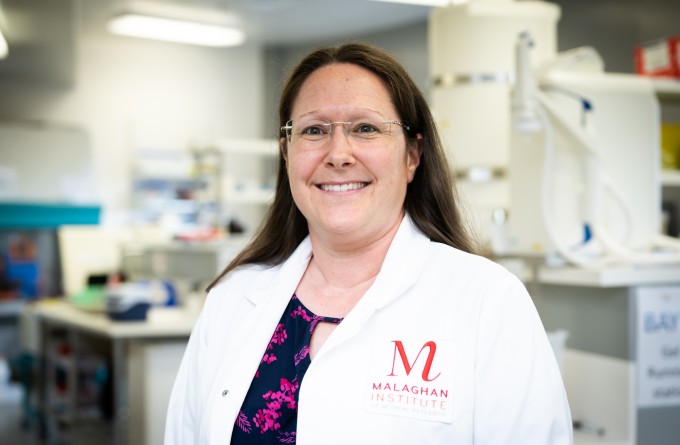
Momentum is everything: advancing CAR T-cell research for future trials and treatments
25 February 2026
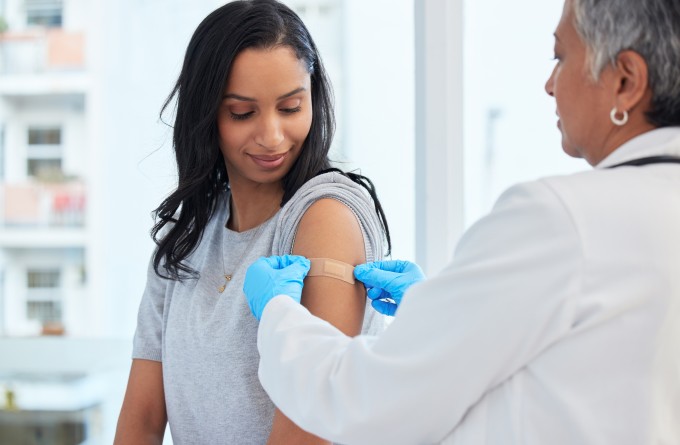
NZ-UK research deepens understanding of germinal centres for better vaccine design
27 January 2026
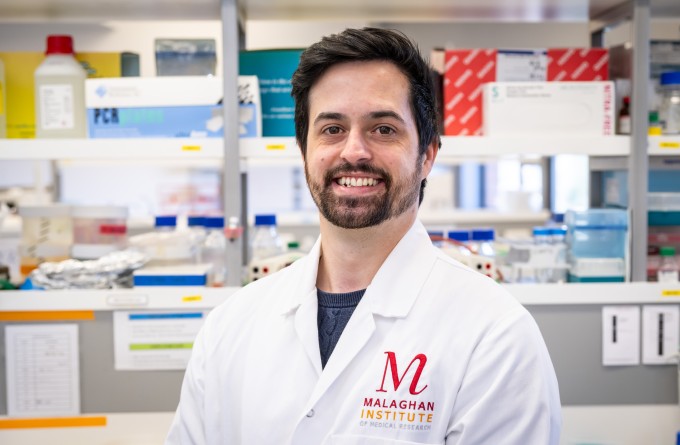
How a quirk of the immune system may play a big role in protecting us from disease
18 December 2025
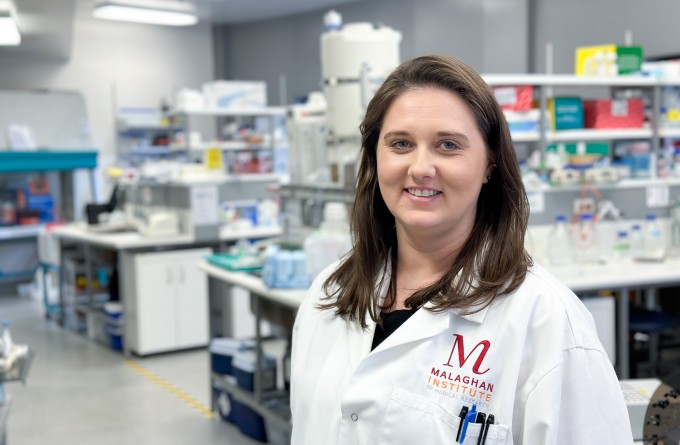
Dr Kerry Hilligan awarded Sir Charles Hercus Health Research Fellowship
2 December 2025
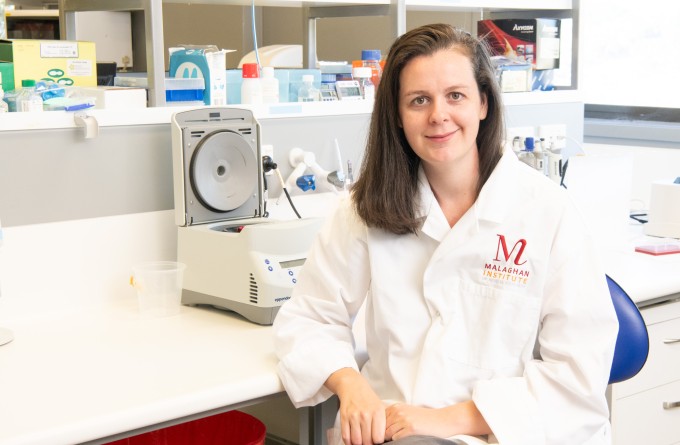
The nose knows: new research explores next generation of nasal vaccines
2 December 2025
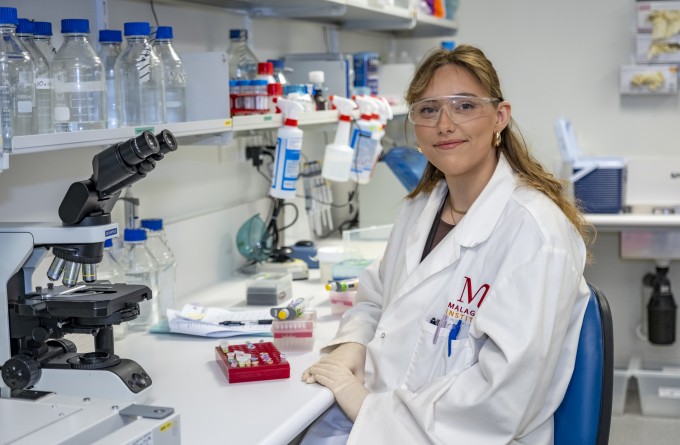
Tracking the journey of the shapeshifting bacteria behind stomach cancer
19 November 2025
